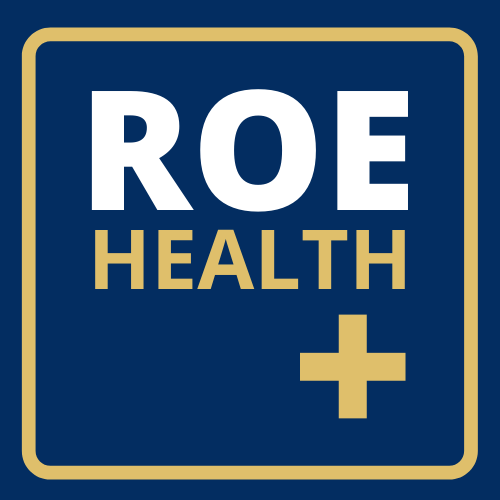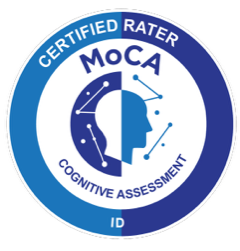This is an important area to consider for those suffering from an autoimmune condition. Many people who suffer with chronic illness will also have an issue with blood sugar balance, which is called dysglycemia.
The problem can be one of too much blood glucose (hyperglycemia) or too little blood glucose (hypoglycemia). Either one can affect your energy levels, your weight, levels of systemic inflammation, your brain function and this can trickle down to all other functions of your body.
Glucose is your brains fuel. Therefore a stable supply of blood glucose is essential for you to function properly too much is bad for you as is too little.
There is also an important connection between the gut and brain, you may have heard this referred to as the gut – brain axis. Fundamentally when brain function is impaired gut function can also become impaired, which can further affect brain function – you can see how this is a difficult spiral, so addressing blood sugar balance is important for everyone but especially those suffering with an autoimmune condition.
Symptoms related to blood glucose levels
Low blood sugar – Reactive Hypoglycemia
- Increased energy after meals
- Cravings for sweets and snacks or coffee between meals
- Irritability if meals are missed
- Become lightheaded if meals are missed
- Eating relieves fatigue
- Fell Shaky or jittery
- Felling agitated and nervous
- Poor memory and forgetfulness
- Blurred vision
- Become easily upset
High blood sugar – Insulin Resistance symptoms
- Fatigue after meals
- General Fatigue
- Constant Hunger
- Cravings for sweets – not relieved by eating them
- Must have something sweet after a meal
- Waist girth is equal to or larger that hip girth
- Frequent Urination
- Increased appetite and thirst
- Difficulty losing weight
- Migrating aches and pains
Reactive Hypoglycemia
If you relate to the symptoms listed above outlining hypoglycemia then as your levels of blood sugar drop your brain is deprived of fuel and can therefore not function properly. That results in symptoms such as shakiness, lightheadedness, headaches and other neurological symptoms.
There is a strong connection between blood glucose levels and adrenal function. The adrenal glands produce a hormone called cortisol, which helps the body to raise blood sugar levels. When the adrenal glands are not functioning properly or unable to produce enough cortisol this can further affect the hypoglycemic persons ability to raise blood sugar levels. This again is another example of a spiral of dysfunction where blood sugar dysregulation is affecting other important systems in the body.
The adrenal gland is related to the production of other hormones that also play with systemic inflammation and autoimmune conditions.
Insulin resistance – Hyperglycemia
If on the other hand you relate more to the symptoms listed for hyperglycemia, the major factor for you is the inflammatory action of excess sugar and starchy carbohydrates in food, on your brain.
To further compound this, just as the levels of blood sugar are inflammatory excess insulin is inflammatory to your brain. The function of the hormone insulin is to take sugar from your blood and store it in your liver, muscles or fat. Insulin resistance is a situation where ones body has had so much insulin that cells in your liver, muscles and fat no longer react to it and the resulting high blood glucose levels promote your pancreas to produce more insulin. This is another example of a spiral of dysfunction.
If that wasn’t enough excess sugar also affects hormone balance, gut health, thyroid function and adrenal health.
Hopefully you are beginning to see how important managing your blood sugar level is to your long-term health, not just for those who have the additional burden of an autoimmune condition to deal with.
What to do about blood sugar issues
Regardless of whether you have hypoglycemia or hyperglycemia you must get your blood sugar under control.
If you are in the situation where you have developed insulin resistance you will have to reduce your sugar and processed carbohydrate intake, you will no longer be able to eat what you want when you want.
Alternatively if you are suffering from hypoglycemia you will also need to cut down on sugars and processed carbohydrates in you diet but you will not be able to skip meals or snack on sugary foods, you will need to eat breakfast (protein based) and then eat small regular meals every 2-3 hours.
There are nutritional supports available to help you get blood sugar issues under control. It is important that you use the right support for hypo- or hyperglycemia. As people can be both hypo and hyper at certain times getting this balance right can be problematic and should be discussed with a qualified health practitioner.
Autoimmune diet protocol and blood sugar
The realty is that people can often be hypoglycemic and will also have some level of insulin resistance the best ways to get blood sugar under control is to follow the autoimmune diet recommended. Strictly speaking blood sugar levels are increased from the intake of carbohydrates and sugars, and it is possible to do an exclusion based on removing all carbohydrates for a period of time and then reintroducing them after a period of elimination – The autoimmune diet protocol is the same principle it is just a slightly different group of foods being excluded.
As a rule of thumb if you feel tired after a meal and want to nap you have eaten too many carbohydrates.
For those suffering with autoimmune conditions this may not be enough as the removal of nightshades, all dairy, eggs, nuts and seeds and lectins are important factors in diet management.
I am not going to pretend this is easy – initially you can experience cravings. The addictive nature of some foods and just the widespread availability of processed carbohydrates in western society do not help.
An additional challenge is that if you are eating foods that you are sensitive to it can stimulate the adrenal glands which can give you an “adrenaline rush” to foods that are actually bad for you - increasing your cravings for those damaging foods.
Most people who undertake elimination protocol will find it hardest for the first 3 days but as you blood sugar levels stabilize and the cravings stop you will feel better and this will encourage you to continue with the protocol and make the changes to your diet and lifestyle that will help you in the long run.
Lifestyle habits that help to manage blood sugar
Outside of changing you diet and removing foods that spike your blood glucose and insulin levels there are some general habits that you will need to adopt:
1. EAT BREAKFAST – If you are having issues with blood sugar management you must eat breakfast. That breakfast should be high in protein and fats.
If you wake in the morning with nausea or no appetite that is a sign that you adrenal glands are not functioning properly. Drinking coffee at this stage is only making matters worse. What you need to do is eat some protein even if it is a small amount you must force yourself to eat. This will set up your body to be able to stabilise blood sugar throughout the day. Usually people find that their feeling or nausea and low appetite reverse after 2-3 days of forcing themselves to eat some protein
It is not possible to support blood glucose unless you eat breakfast. If you like to exercise before when you get up try to eat no later than 1 hour after waking.
2. If you have hypoglycemia eat small amounts of protein & fat every 2-3 hours.
3. Find your particular level of carbohydrate tolerance and then do not exceed it. The best way to do this is using an exclusion/reintroduction protocol that you will find on this site. As a rule of thumb if you feel sleepy or your energy crashes you have eaten too much carbohydrate.
4. Food intolerances can also cause feeling of sleepiness and low energy so it is important to figure these out - again the best way is by using and exclusion/reintroduction protocol.
5. Eat carbohydrates with fiber, protein and fats at the same time this helps to slow the absorption of glucose into the blood stream
6. Never eat starchy or sweet foods before bed
7. Avoid all fruit juices including carrot juice – these are just too high in sugars
8. Limit your fruit intake – fruit is high in sugar and will cause your insulin levels to spike
9. Limit caffeinated drinks and avoid all carbonated and energy boost drinks
Hopefully I have managed to explain to you some of the many health issues that can be caused by unregulated blood sugar. The effect of this issue can causes many different problems with you brain health, adrenal glands, thyroid function, hormone balance to carrying excess weight. Unravelling all those issues starts with getting your blood sugar under control.
Stay Up to Date - get new blog posts, videos and articles straight into your inbox
Contact Us
Stay Up to Date - get new blog posts, videos and articles straight into your inbox
Contact Us
Blog Categories










